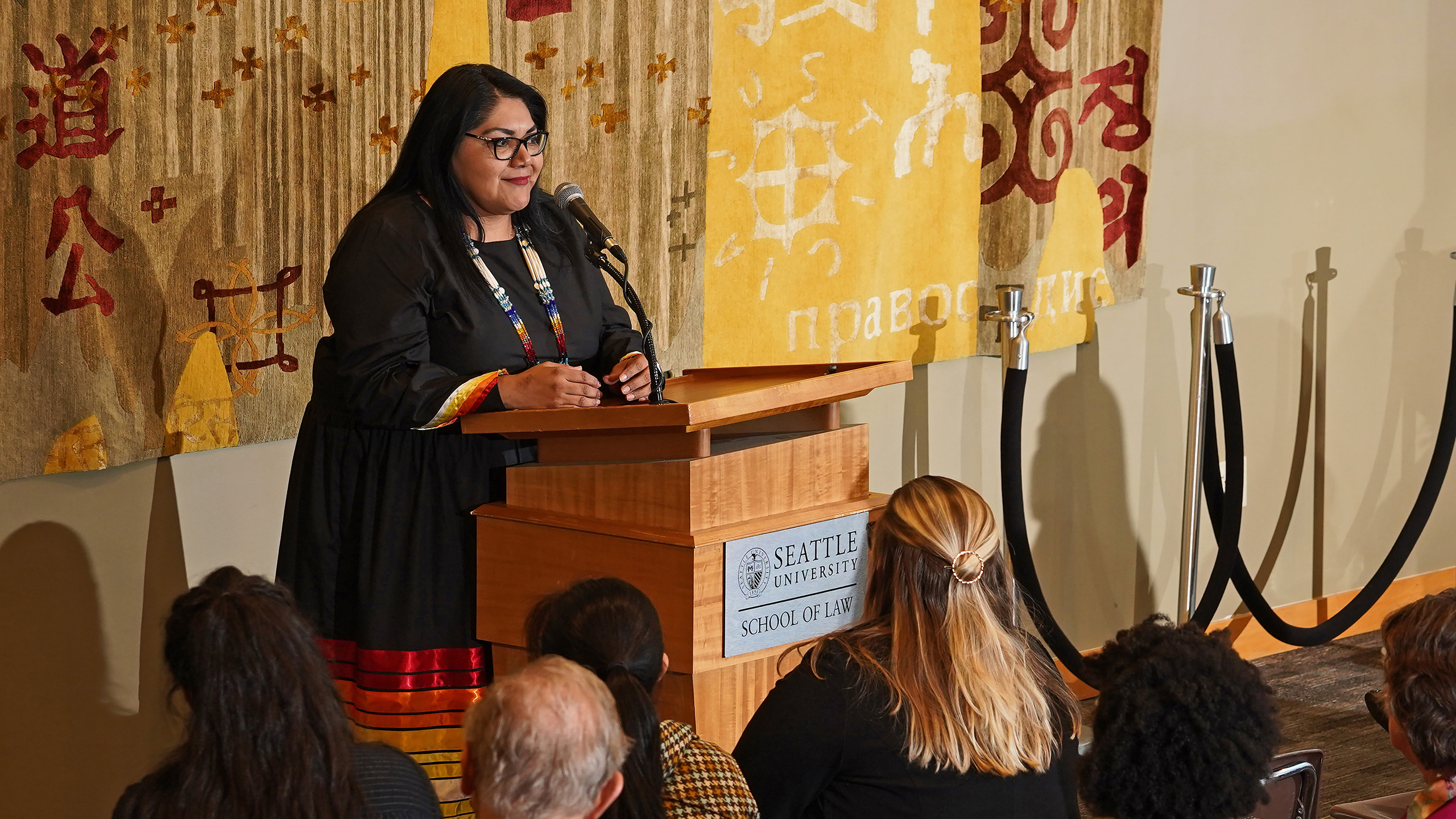Law students learned about an innovative approach to restorative justice, called "Healing to Wellness," at a special event hosted by the Center for Indian Law and Policy (CILP) last month.
The approach, as practiced in some tribal courts, brings together alcohol and drug treatment, community healing resources, and the tribal justice process by using a team approach to achieve the physical and spiritual healing of the individual participant, and to promote Native nation building and the well-being of the community.
The event at Seattle University School of Law kicked off with a screening of the film, "Tribal Justice," featuring two tribal court judiciaries in California. Following the screening, Judge Claudette White, one of the judges in the film, led a discussion about how this mode of restorative justice has transformed her community and others. (See photos from the event on Flickr.)
Instead of following conventional punitive systems of justice, these tribal courts provide holistic, structured, and phased treatment and rehabilitation services that incorporate culture and tradition.
White is an enrolled member of the Quechan Indian Tribe and has served the tribe as a judge for 11 years, as a pro tem judge and now as chief judge, based in inland southern California. Over a distinguished career with tribal courts, she has collaborated with local and neighboring jurisdictions and educated her state counterparts to ensure tribal court recognition.
At the Seattle event, she was joined by three of her sisters and her son, who honored guests at the law school with a song for strength.
Judge Lori Smith, with the Washington State Court of Appeals Division 1, and Judge Cindy Smith, Chief Judge at Suquamish Tribal Court, both shared the work they are leading as co-chairs to the Tribal State Court Consortium (TSCC). The TSCC is a joint effort between state and tribal court judicial officers and other judicial branch members to expand communication and collaboration.
The TSCC provides an open, transparent forum where state and tribal court judicial officers can come together and discuss jurisdictional issues, gaps in services, and ways to develop lasting partnerships. The TSCC focuses its efforts on domestic violence and sexual assault issues, dependency cases involving Indian children, and the disproportionate number of Indian youth in the juvenile justice system.
CILP organized the event in partnership with the Indigenous Peoples Institute at Seattle University and the Washington Supreme Court Commissions, which include the Tribal State Court Consortium, the Minority and Justice Commission, and the Gender and Justice Commission.
To learn more about Healing to Wellness courts, or tribal court systems using similar methods, please visit: www.wellnesscourts.org

